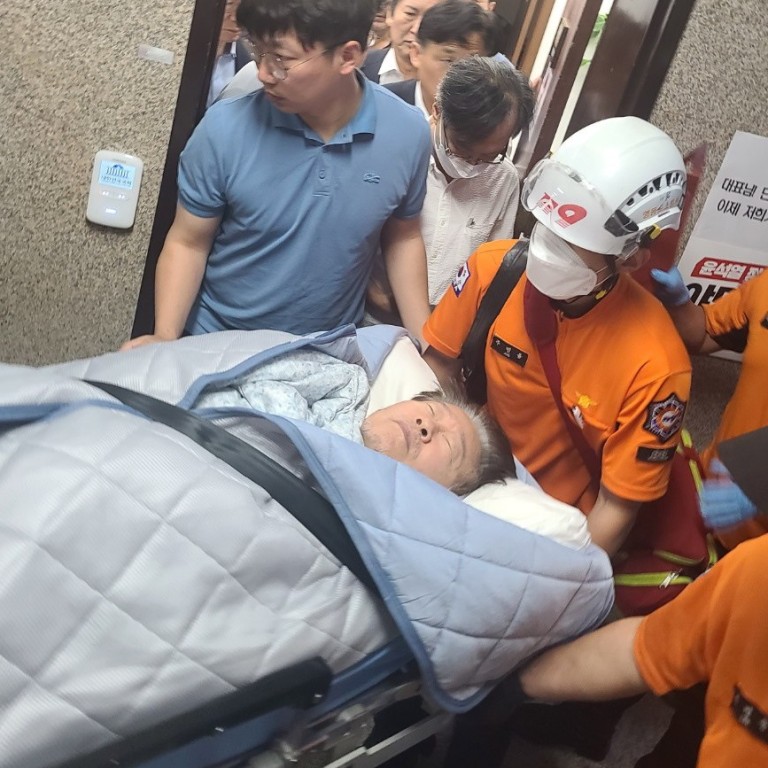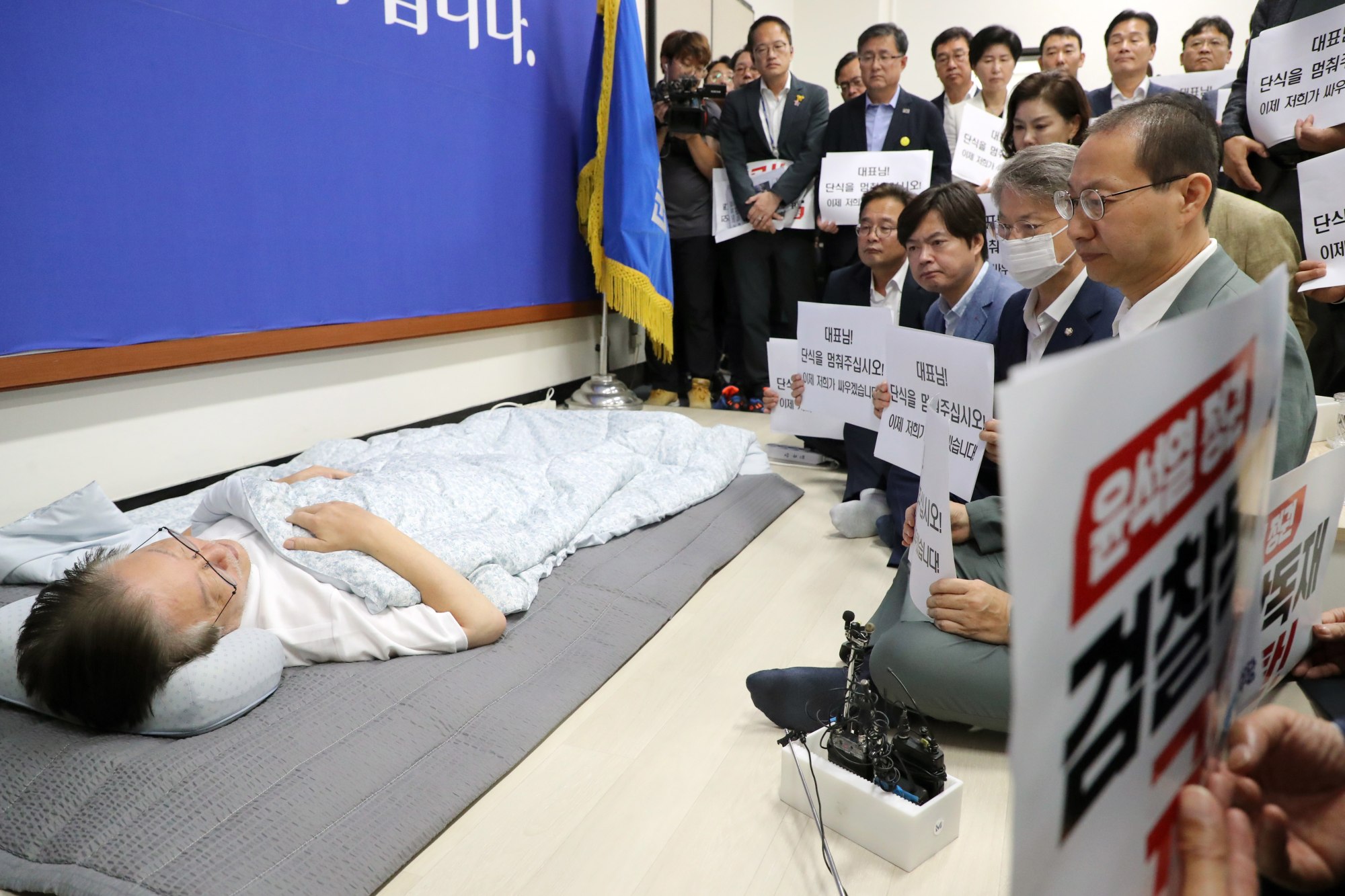
South Korea’s anti-Fukushima opposition chief in hospital after hunger strike
- Democratic Party leader Lee Jae-myung cited Seoul’s failure to oppose the Fukushima wastewaster release as one of the reasons for his hunger strike
- His hospitalisation came as prosecutors are seeking an arrest warrant for him over allegations of corruption, illegal money transfers to North Korea

Kim Gi-hyeon, the head of the ruling People Power Party, has urged Lee to stop fasting, saying he was ready to talk with the opposition leader on policy issues.
Hours after Lee was transferred to a hospital, prosecutors said they had requested an arrest warrant for him as part of an investigation into a development project and bribery allegations.
Lee is accused of being in breach of his duty over losses of 20 billion won (US$15 million) run up by Seongnam Development Corporation during his time as mayor of Seongnam city, prosecutors said.
‘Act of terror’: South Korea’s divisions deepen over Fukushima water dump
Lee has denied any wrongdoing, calling the allegations “fiction” and a “political conspiracy”.
A Seoul court needs the 300-member parliament, where the Democrats hold a majority, to waive Lee’s immunity from arrest to review the prosecution’s request.
Parliament rejected their previous request for an arrest warrant in February.

